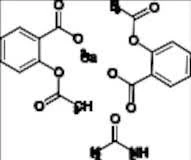- Afrikaans
- Albanian
- Amharic
- Arabic
- Armenian
- Azerbaijani
- Basque
- Belarusian
- Bengali
- Bosnian
- Bulgarian
- Catalan
- Cebuano
- Corsican
- Croatian
- Czech
- Danish
- Dutch
- English
- Esperanto
- Estonian
- Finnish
- French
- Frisian
- Galician
- Georgian
- German
- Greek
- Gujarati
- Haitian Creole
- hausa
- hawaiian
- Hebrew
- Hindi
- Miao
- Hungarian
- Icelandic
- igbo
- Indonesian
- irish
- Italian
- Japanese
- Javanese
- Kannada
- kazakh
- Khmer
- Rwandese
- Korean
- Kurdish
- Kyrgyz
- Lao
- Latin
- Latvian
- Lithuanian
- Luxembourgish
- Macedonian
- Malgashi
- Malay
- Malayalam
- Maltese
- Maori
- Marathi
- Mongolian
- Myanmar
- Nepali
- Norwegian
- Norwegian
- Occitan
- Pashto
- Persian
- Polish
- Portuguese
- Punjabi
- Romanian
- Russian
- Samoan
- Scottish Gaelic
- Serbian
- Sesotho
- Shona
- Sindhi
- Sinhala
- Slovak
- Slovenian
- Somali
- Spanish
- Sundanese
- Swahili
- Swedish
- Tagalog
- Tajik
- Tamil
- Tatar
- Telugu
- Thai
- Turkish
- Turkmen
- Ukrainian
- Urdu
- Uighur
- Uzbek
- Vietnamese
- Welsh
- Bantu
- Yiddish
- Yoruba
- Zulu
10 月 . 31, 2024 10:41 Back to list
what drugs are used for parasites
Drugs Used for Parasite Treatment
Parasites are organisms that live on or in a host and rely on that host for nutrients. They can cause a variety of diseases in humans and animals, making the treatment of parasitic infections crucial for public health. A range of drugs is available to combat these parasites, including antihelminthic medications for worms and antiprotozoal drugs for protozoans.
Antihelminthic Drugs
Antihelminthic drugs are used to treat infections caused by helminths, which are larger parasites such as flatworms and roundworms. Some of the most common antihelminthic medications include
1. Albendazole This broad-spectrum anthelmintic is effective against several types of worms, including hookworms, roundworms, and tapeworms. It works by inhibiting the uptake of glucose by the parasite, leading to its death.
2. Mebendazole Similar to albendazole, mebendazole is particularly effective against infections caused by pinworms and roundworms. It disrupts the parasite's ability to absorb sugars and other nutrients.
3. Praziquantel This drug is primarily used to treat infections caused by flatworms, particularly schistosomiasis and liver flukes. Praziquantel increases the permeability of the parasite's cell membrane, resulting in muscle contraction and paralysis of the worm.
4. Ivermectin Originally used for veterinary purposes, ivermectin is effective against a variety of roundworms and is the drug of choice for conditions like lymphatic filariasis and onchocerciasis (river blindness).
what drugs are used for parasites

Antiprotozoal Drugs
Protozoa are single-celled organisms that can also cause significant infections, and several specialized drugs are available to treat these diseases
1. Metronidazole Often prescribed for infections caused by Giardia lamblia and Entamoeba histolytica, metronidazole works by interfering with the DNA synthesis of the protozoa.
2. Nitazoxanide This drug is effective against a variety of gastrointestinal protozoal infections, including cryptosporidiosis and giardiasis. It works by disrupting the energy metabolism of the parasite.
3. Artemisinin-based Combination Therapies (ACTs) These are the mainstay of treatment for malaria, a serious protozoal infection. Artemisinin, derived from the Sweet Wormwood plant, is combined with other drugs to enhance efficacy and reduce resistance.
Conclusion
The management of parasitic infections relies on a variety of medications specifically targeting different types of parasites. Understanding the drugs available and their mechanisms of action is essential for effective treatment and control of these infections, ultimately improving global health outcomes. Always consult healthcare professionals for accurate diagnosis and appropriate treatment options for parasitic diseases.
-
The Power of Radix Isatidis Extract for Your Health and Wellness
NewsOct.29,2024
-
Neomycin Sulfate Soluble Powder: A Versatile Solution for Pet Health
NewsOct.29,2024
-
Lincomycin Hydrochloride Soluble Powder – The Essential Solution
NewsOct.29,2024
-
Garamycin Gentamicin Sulfate for Effective Infection Control
NewsOct.29,2024
-
Doxycycline Hyclate Soluble Powder: Your Antibiotic Needs
NewsOct.29,2024
-
Tilmicosin Premix: The Ultimate Solution for Poultry Health
NewsOct.29,2024













